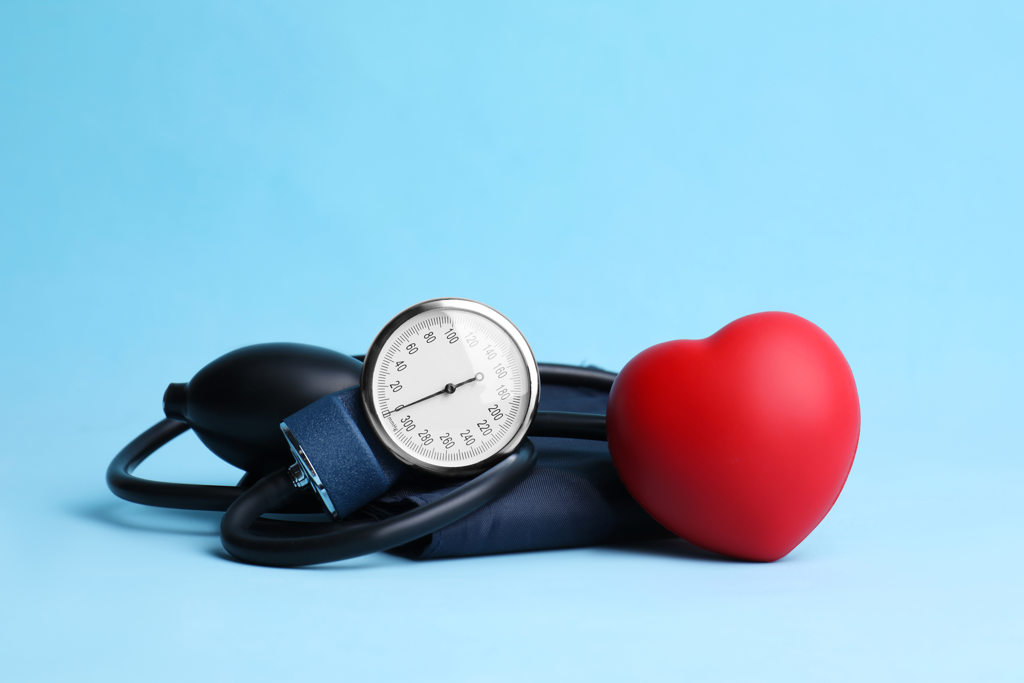Learn how old your heart is by taking our Heart Health Quiz online. You will also discover the risk factors that you can change right now to lower your risk. It only takes five minutes.
Your heart’s age may be older than your actual age as a result of factors such as smoking or high blood pressure. Having a heart that is older than your actual age puts you at an increased risk for heart disease, heart attacks and strokes.
The Silent Killer

Nearly half of Americans have it, and it can go undiagnosed for years: high blood pressure. Also known as hypertension, this condition is a major risk factor for heart disease, heart attack, stroke and even death.
What is blood pressure, and what does it mean if it is high?
On average, the heart beats 100,000 times per day. Every time it beats, it pumps blood through the arteries to the rest of the body, which puts pressure on the artery walls. The force of the blood against the walls is called blood pressure, and it usually rises and falls throughout the day. If your blood pressure is consistently higher than normal, however, it can cause the heart and blood vessels to work harder and less efficiently.
“The pressure and friction caused by high blood pressure can harm the delicate tissues lining the arteries,” said Kara Kozloski, DO, a family medicine physician with Penn Highlands Healthcare. “This can cause cholesterol to accumulate and form plaque, causing the inside of the arteries to become narrower, which in turn increases blood pressure even more. It is a vicious cycle that reduces blood flow to the brain and body.”
How do I know if I have high blood pressure?
Hypertension typically develops slowly and often has no symptoms. Sometimes, people may experience moderate or severe headaches, shortness of breath, dizziness or nausea. The only way to know if your blood pressure is high is by having it regularly checked by your primary care provider. Individuals with normal blood pressure should be screened during their annual exams. If you are diagnosed with high blood pressure, your primary care provider may recommend monitoring your numbers at home in addition to regular exams.
I know my blood pressure. What do the numbers mean?
The American Heart Association offers the guide below to blood pressure readings.
Normal: systolic (the top number) of less than 120 and diastolic (bottom number) of less than 80. If your blood pressure is normal, continue eating a balanced diet and getting regular exercise to maintain heart health.
Elevated: systolic of 120-129 and diastolic of less than 80. Individuals with elevated blood pressure are likely to develop high blood pressure unless steps are taken to control the condition.
Hypertension Stage 1: systolic of 130-139 or diastolic of 80-89. At this stage, your primary care provider will likely prescribe lifestyle changes and may consider adding blood pressure medication based on your risk of atherosclerotic cardiovascular disease, such as heart attack or stroke.
Hypertension Stage 2: systolic of 140 or higher or diastolic of 90 or higher. At this stage of high blood pressure, you will likely be prescribed a combination of blood pressure medications and lifestyle changes.
Hypertensive Crisis: systolic of 180 or higher and diastolic of 120 or higher. If your blood pressure numbers indicate a hypertensive crisis, you should seek medical attention immediately.
How can I manage my blood pressure?
“Eating a healthy diet, maintaining a healthy weight, staying physically active and not smoking are the best ways to keep your blood pressure at a healthy level,” said Dr. Kozloski. “You should also limit the amount of alcohol you drink, no more than two drinks per day for men and one drink for women, and get enough sleep each night. If you have high blood pressure, this same advice can help you lower it.”
For some people, medication is necessary to help manage high blood pressure. Your primary care physician will prescribe the best medication to meet your needs.
Penn Highlands Family Medicine and Internal Medicine offer comprehensive primary care at convenient locations throughout Pennsylvania. The primary care providers at Penn Highlands can help monitor your health and wellness. They are dedicated to forming ongoing relationships with patients to provide the best care possible. To make an appointment or to learn more, visit www.phhealthcare.org/primarycare.

